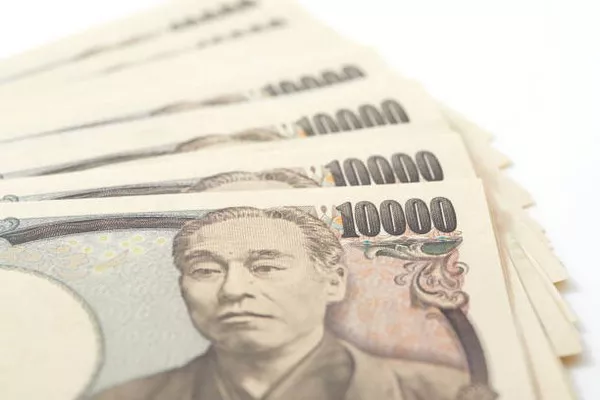In today’s interconnected global economy, currency exchange rates play a crucial role in international trade, investment, and travel. For individuals and businesses looking to exchange British pounds (GBP) for Japanese yen (JPY), finding the best exchange rate is essential to maximize value and minimize costs. In this comprehensive guide, we delve into the factors that influence exchange rates, explore different methods for exchanging currency, and provide tips for securing the best rates when converting GBP to JPY.
Understanding Exchange Rates
Exchange rates represent the value of one currency in terms of another and are determined by a complex interplay of factors, including supply and demand dynamics, economic indicators, geopolitical events, and central bank policies. In the case of GBP to JPY, the exchange rate indicates how many Japanese yen one British pound can buy.
Factors Affecting GBP to JPY Exchange Rates
Several factors influence the GBP to JPY exchange rate, including:
Economic Data: Economic indicators such as GDP growth, inflation rates, unemployment figures, and trade balances can influence market sentiment and impact exchange rates. Strong economic performance in the UK or Japan may lead to a stronger currency, while economic downturns can weaken it.
Monetary Policy: Central bank policies, including interest rate decisions and quantitative easing measures, can influence currency values. Higher interest rates in the UK relative to Japan may attract foreign investment and strengthen the pound, while lower rates may have the opposite effect.
Political Stability: Political stability and geopolitical events can affect investor confidence and currency values. Uncertainty or instability in either the UK or Japan may lead to volatility in exchange rates.
Market Sentiment: Market sentiment, including investor risk appetite and sentiment towards specific currencies, can influence exchange rates in the short term. Factors such as news events, speculation, and market psychology can drive fluctuations in currency values.
Trade Relations: Trade relations between the UK and Japan, including tariffs, trade agreements, and export/import levels, can impact exchange rates. Changes in trade policy or trade imbalances may affect currency values over time.
Methods for Exchanging GBP to JPY
There are several methods for exchanging GBP to JPY, each with its advantages and disadvantages:
Banks: Banks offer currency exchange services to their customers, allowing them to exchange GBP for JPY at the prevailing exchange rate. While convenient, bank exchange rates may not always be the most competitive, and additional fees or commissions may apply.
Currency Exchange Services: Dedicated currency exchange services, such as Travelex or CurrencyFair, specialize in currency exchange and may offer more competitive rates compared to banks. These services may also offer additional features such as online ordering and delivery.
ATMs: Using ATMs to withdraw Japanese yen directly from a UK bank account can be a convenient option for travelers. However, ATM withdrawal fees and foreign transaction fees may apply, and the exchange rate may not be as favorable as other methods.
Online Currency Exchanges: Online currency exchange platforms, such as TransferWise or Revolut, allow users to exchange currencies at competitive rates with lower fees compared to traditional banks. These platforms typically offer transparent pricing and fast transfers, making them popular choices for international money transfers.
Currency Brokers: Currency brokers specialize in large currency transactions and may offer more competitive exchange rates compared to banks or other providers. However, using a currency broker may require setting up an account and may not be suitable for small transactions.
Tips for Securing the Best Exchange Rate
When exchanging GBP to JPY, consider the following tips to secure the best exchange rate:
Monitor Exchange Rate Trends: Keep an eye on GBP to JPY exchange rate trends and market movements to identify favorable times for currency exchange.
Compare Exchange Rates: Compare exchange rates offered by different providers, including banks, currency exchange services, and online platforms, to find the most competitive rate.
Avoid Dynamic Currency Conversion: When using ATMs or making card payments in Japan, opt to be charged in Japanese yen rather than British pounds to avoid dynamic currency conversion fees, which often offer unfavorable exchange rates.
Consider Timing: Consider timing your currency exchange to take advantage of favorable market conditions or events that may impact exchange rates, such as central bank announcements or economic data releases.
Watch Out for Hidden Fees: Be aware of any hidden fees or charges associated with currency exchange, including transaction fees, commissions, and spread margins. Factor these costs into your decision when comparing exchange rates.
Conclusion
Navigating currency markets and finding the best exchange rate for converting British pounds to Japanese yen requires careful consideration of factors such as economic conditions, market sentiment, and exchange rate trends. By understanding the factors that influence exchange rates, exploring different methods for exchanging currency, and following tips for securing the best rates, individuals and businesses can maximize the value of their currency exchanges and minimize costs. Whether for travel, investment, or international trade, informed decision-making is key to unlocking value in currency exchange transactions.


